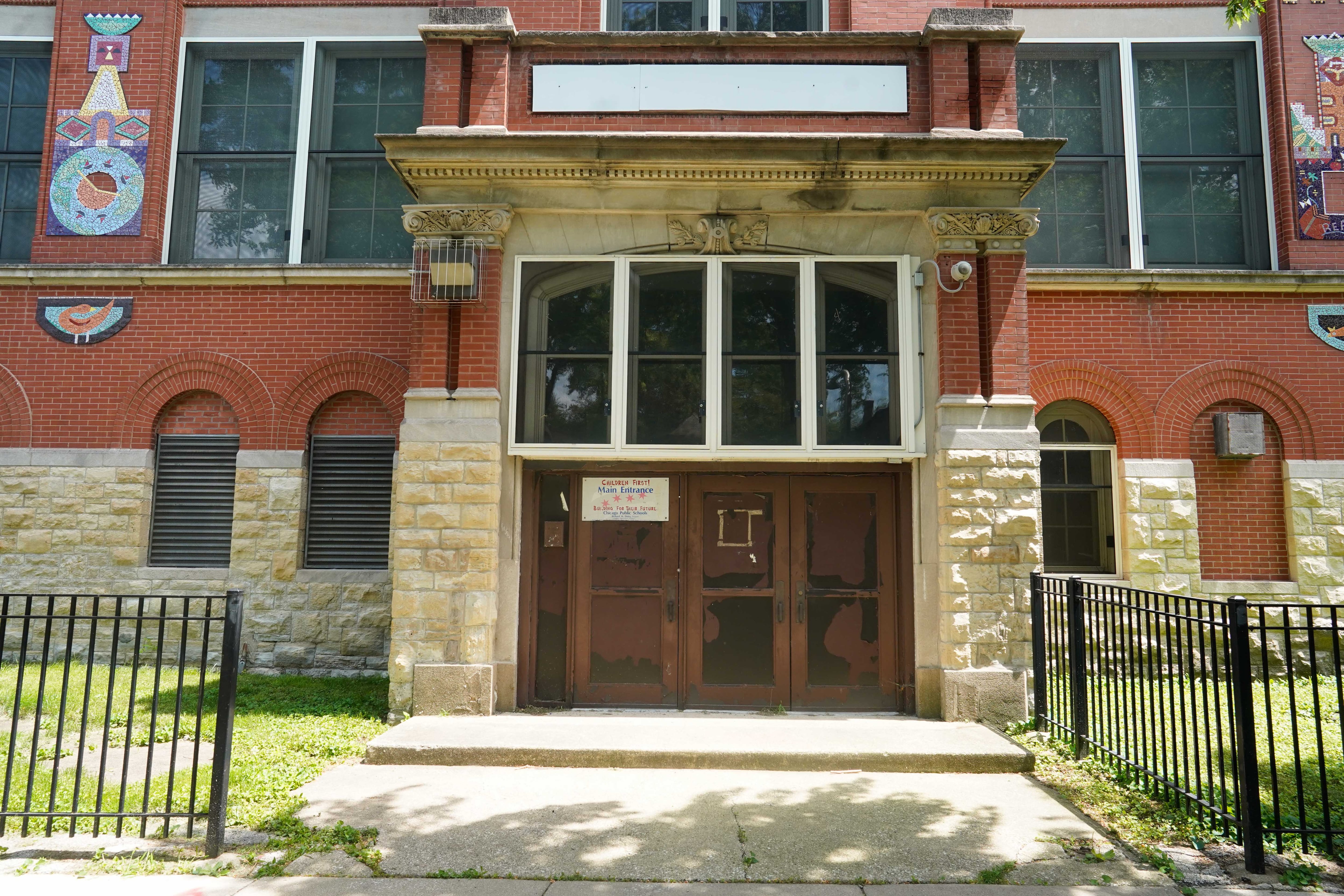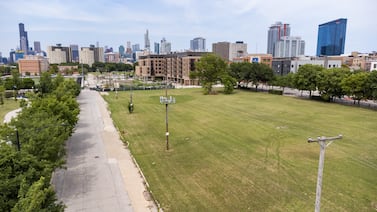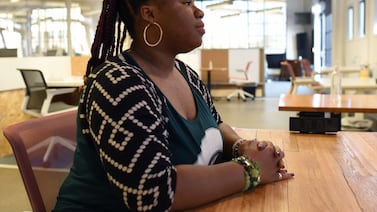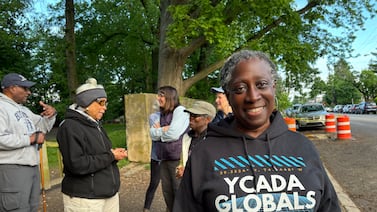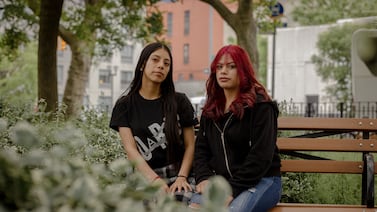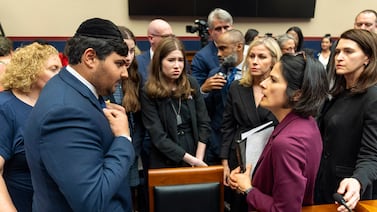Sign up for Chalkbeat Chicago’s free daily newsletter to keep up with the latest education news.
Illinois lawmakers want to extend a moratorium on school closures in Chicago and prevent changes at selective enrollment and magnet schools until 2027, when a fully elected school board is sworn in.
The proposal moving through the legislature first emerged in response to a resolution passed by the Chicago school board in December to develop a new strategic plan that would move away from school choice and invest more in neighborhood schools. That sparked concerns Chicago Public Schools could close or change admissions at dozens of sought-after selective and magnet schools, though board members continue to reiterate they do not intend to close those schools.
The initial bill sought to prevent the district from closing or changing admissions policies at any selective or magnet schools. Now, lawmakers are now also proposing to extend an existing moratorium on any school closures to Feb. 1, 2027. Currently, state law prevents Chicago from closing schools until January 15, 2025, when a partially elected school board is set to be sworn in.
State Rep. Margaret Croke, a Democrat serving neighborhoods on the city’s northern lakefront and sponsor of the bill, said in a committee hearing Tuesday the legislation is meant to delay any big changes until an elected school board is in place.
“These huge decisions, I believe, should be made by an elected school board because we, as a general assembly, voted for an elected school board,” Croke said.
However, Croke said district officials approached her about not extending the moratorium.
“They do have concerns about what their budget is going to look like and whether or not they’re going to start having conversations about some of the schools that they need to have consolidated,” Croke said.
CPS last closed schools in 2018, when it consolidated four high schools in Englewood and built a new state-of-the-art neighborhood high school. Prior to that, the district closed 50 schools all at once in 2013, sparking months of protests and propelled political organizing within the Chicago Teachers Union that eventually helped elect current Chicago Mayor Brandon Johnson.
The school district has lost roughly 80,000 students in the past decade, and many schools once again struggle with low enrollment. For example, one high school on the West Side has just 33 students enrolled. Still, enrollment stabilized this school year and is climbing as new immigrant students enroll.
During a committee hearing Tuesday, State Rep. Marcus Evans Jr., who represents neighborhoods on Chicago’s south side, said the district does need to provide more support to neighborhood schools to make them more attractive to families.
“Parents are crying because they can’t get their kid into a selective enrollment school,” he said. “We’ve got a bunch of schools where people don’t want to send their kids. That means we got to fix those schools. The focus has to be on neighborhood schools.”
Evans added that CPS has “serious issues” with race and class that need to be addressed, noting that he hears from well-resourced Black and white constituents who won’t send their children to neighborhood public high schools in his ward.
Many of Chicago’s most sought-after selective schools are more diverse than the rest of the school district, but also are disproportionately less low-income and more white and Asian American than the rest of CPS.
“I think the new leadership – under the mayor, the new board – they want to do something different and I think it’s making people uncomfortable,” Evans said.
Chicago Board of Education President Jianan Shi said there is no plan or intent to close or change selective schools, but rather an attempt to fix inequities across the district.
“I am committed to working with everyone here on whether it’s budget, whether it’s selective enrollment and all the ways we can strengthen our school types,” Shi said.
Selective enrollment and magnet schools used to admit students based on race when Chicago was under a federal desegregation consent decree. That changed after a 2006 Supreme Court ruling curtailed the use of race as a factor in high school admissions. Now students are admitted based on the socioeconomic status of their home neighborhood.
Shi noted that since then, some of the district’s top high schools, such as Walter Payton, have become less Black and Latino and less low-income.
“Our Latine student population in CPS is 47%. That is no nowhere close to where our selective enrollments are and it’s even worse for our low-income students,” Shi said.
In 2022, there were discussions about changing selective enrollment admissions, but those mostly did not materialize. CPS did shorten the length of the High School Admissions Test from more than three hours to one hour and now tests all eighth graders during the school day in order to make it accessible to all students.
Croke did adjust some language in the bill since she introduced it, including that selective schools can’t see their budgets “disproportionately” decreased compared to other schools.
CPS schools got their preliminary budgets last week. District officials said the total amount of funding dedicated to all schools won’t be cut, but individual campuses could see fluctuations up or down.
Next school year, the district is doing away with student-based budgeting and switching to a formula that allocates set staffing levels and provides additional money based on need.
CPS has not publicly shared all schools’ preliminary budgets and a spokesperson did not provide information about how many selective schools are seeing changes to their budgets next year.
Shi said during a committee hearing in Springfield that 22 of 36 selective schools will maintain funding or see an increase next school year.
Stephen Mitchell, the Local School Council chair at Bronzeville Classical Elementary School, said their budget appears to be reduced, even though it’s difficult to compare year to year numbers.
“You hear CPS say‚ ’Oh, nothing’s gonna change,”' Mitchell said. “But then when we look, we see something different. So it’s definitely making us you know, raise an eyebrow and say, hey, you know what’s going on here? You’re telling us one thing, but it looks like you’re doing something else.”
Chicago school board vice president Elizabeth Todd-Breland said Wednesday morning that the bill looks to solve a problem that doesn’t exist.
“The small number of selective enrollment schools in the district are well enrolled. They are well resourced and Chicago Public Schools and this board of education will continue to support these schools,” she said.
Todd-Breland said the district is facing a “serious structural deficit” and the board is required to pass a balanced budget annually.
“We are worried about the very real possibility that as an unintended consequence of this bill, we in the out years will be forced to balance our budget on the backs of neighborhood schools that disproportionately serve students with disabilities, black students, Latinx students, students in temporary living situations, and low income students,” she said.
Samantha Smylie contributed reporting.
Becky Vevea is the bureau chief for Chalkbeat Chicago. Contact Becky at bvevea@chalkbeat.org.
